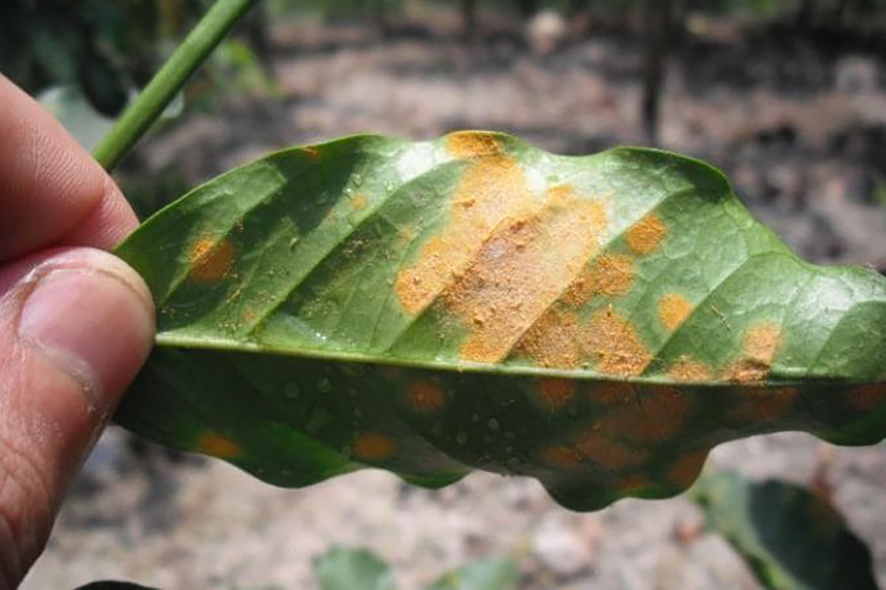The effects of climate change on coffee production are generally thought to be deleterious and multi-faceted, impacting not only where coffee can be grown but also the efficacy of its cultivation. But as reported by the Telegraph, a new study suggests that one of the leading impediments to coffee production – leaf rust, or roya – may not be caused by climate change as previously thought.
Published in The Royal Society’s Philosophical Transaction B, the study examined Colombian coffee farms between 2008 and 2011, when leaf rust was at its worst, reducing production by 40%. The authors — the University of Exeter’s Dr. Dan Bebber, Sarah Gurr, and Angela Delgado Castillo – attribute the devastating spread of leaf rust not to climate change but to farmers’ lack of funds.
They found that, while the climate at that time was conducive for the spread of the lethal fungus, the financial crisis negatively affected a farmer’s ability to care for his crops, which the authors suggest played a much larger role in the spread of roya. According to the paper, due to rising prices farmers were using less fertilizer for their coffee trees than they normally would, “and this was probably one of the factors that led to the rise in coffee leaf rust.”
The paper ultimately concludes:
We find no evidence for an overall trend in disease risk in coffee-growing regions of Colombia from 1990 to 2015, therefore, while weather conditions were more conducive to disease outbreaks from 2008 to 2011, we reject the climate change hypothesis.
It is somewhat of a relief that perhaps not all of the devastation to coffee growing is caused by a single, seemingly unstoppable global phenomenon. What’s better still is that, assuming the paper is correct and lack of money is the root cause, we as coffee buyers, roasters, and drinkers can use our dollars to be part of a real change.
Zac Cadwalader is the news editor at Sprudge Media Network.
*top image via the Telegraph



























